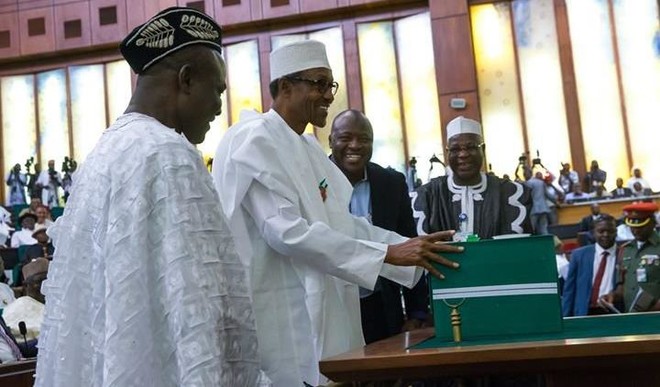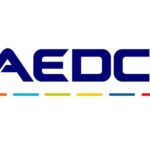
It was one of Nigeria’s most prominent bureaucrats Alhaji Alhaji who in his capacity as Minister of National Planning in the early nineties described the Niger Delta as a farm, and went on to ask “whoever develops a farm?” He was responding to the spate of mounting agitation for a better deal for the region by a coalition of local and foreign stake holders. To be fair to him such a mindset did not originate from him as it had remained the underlying attitude of the country’s leadership in its dealings with the oil rich zone even before Alhaji’s time. Kudos must therefore go to him for his frankness in lending verbal expression to a hidden agenda of the Nigerian state against the zone. Over the years a lot of water had passed under the bridge with the expectation that both harsh lessons and deep insights have been learnt by all parties to the state of affairs in the relationship between this zone and the federal government with the just uncovered budget 2018, providing another opportunity for meaningful relief for the zone.
However, as a critical review of the Budget 2018 will reveal, all it may achieve is to deepen the current vassal status of the Niger Delta vis a vis the rest of the country, as virtually all that the budget provides for the zone are merely intended for the maintenance of the status quo with no new development under consideration. For instance in his submission to the National Assembly on Budget 2018 on the Niger Delta President Muhammadu Buhari (PMB) had emphatically commended the leadership of the zone for facilitating more conducive operational environment which guaranteed increased oil production. Due to the enterprise of the combined leadership of the zone comprising traditional rulers, opinion leaders and youth leaders as well as sundry activists, oil production which had dwindled in the past due to restive tendencies in the region recovered significantly. Exuding his appreciation PMB was to state in his budget speech that “Our mutually beneficial engagement with oil producing communities in the Niger Delta contributed immensely to the recovery in oil production experienced in recent months. We would like to thank the leadership and communities in the Niger-Delta for their continued support and to also reiterate our assurances that this Administration will continue to honour our commitments to them. We cannot afford to go back to those dark days of insecurity and vandalism. We all want a country that is safe, stable and secure for our families and communities. This means we must all come together to address any grievances through dialogue and peaceful engagement. Threats, intimidation or violence are never the answer”.
Inspiring as his take on the Niger Delta is, the budget does not convey the elements to justify his promise for the zone in 2018. Against the backdrop of his welcome speech is a grave limitation of scope of the projects – that is if they are intended to eliminate the deep sense of marginalisation in the zone. For all practical intents and purposes all that the lineup of projects may achieve is to facilitate the extraction and exploitation of the vital oil and gas resources without generating commensurate sustainable development that will yield better streams of benefits for both the zone and the rest of the country. This is just like the farm as Alhaji Alhaji put it earlier.
For instance among the projects listed for the region in the 2018 budget are the completion of the East West Road, retention of the provision for Amnesty programme, as well as increase in the budgetary allocation for the Niger Delta Development Commission (NDDC). While these may sound commendable with respect to the traditional practice of dispensing handouts to the region – often after some costly agitation by restive elements there, none of them provides for a significant transformation of the region to the extent of wiping away even minimally, the endemic poverty that reeks in its marshes, fishing ports, farmlands, hamlets, villages and towns. And from the look of things such contemplation is not yet on the cards of the Nigerian power establishment.
For example the completion of the East West Road and increase of the NDDC budget had remained budgetary items that occurred perennially in the national budget only for the purpose of providing unaccounted-for funds for sharing by the politically well disposed. The Amnesty programme even as it provides some modicum of wealth distribution among the beneficiaries, has suffered stinging criticism over its management as doubts ever linger over its efficacy. Its retention in its present state is not more than a mere palliative aimed at appeasing some vested interests for the purpose of political gains.
Hence, if the political agenda of the Buhari administration is to have a lasting impact on the Niger Delta and by extension the rest of Nigeria, then it is time for some thinking out of the box. An immediate area of inexcusable neglect is the unquantifiable scope of dividends accruable from the expansion and consolidation of the maritime related businesses in the zone. Given the contiguity of locations as Port Harcourt-Onne and the Port Harcourt-Abonnema-Brass-Bonny axis, the development of a continuous maritime hub that encompasses all of these locations into a single destination would have been perhaps the biggest in the world – next only to Singapore and Hong Kong. As is clear the prospects of such may have been glossed over by the country’s transport management establishment. It is significant that even the defunct Eastern Nigeria Government identified the concept a top priority option before the political upheavals of that era took centre-stage and put such plans in limbo. The absence of key items like the fore-going in the 2018 budget renders it short sighted as far as meaningful development of the Niger Delta is concerned.
In any case the development of the Niger Delta beyond the status of a mere farm whose utility may not be defined beyond the narrow context of a source for extraction of needed resources, also has significant drawbacks. After all, it is what is planted in the farm that is legitimately reaped at the end of the day. Budget 2018 can therefore still be adjusted in favour of more attention to the Niger Delta, for the greater benefit of all Nigerians.

 Join Daily Trust WhatsApp Community For Quick Access To News and Happenings Around You.
Join Daily Trust WhatsApp Community For Quick Access To News and Happenings Around You.


